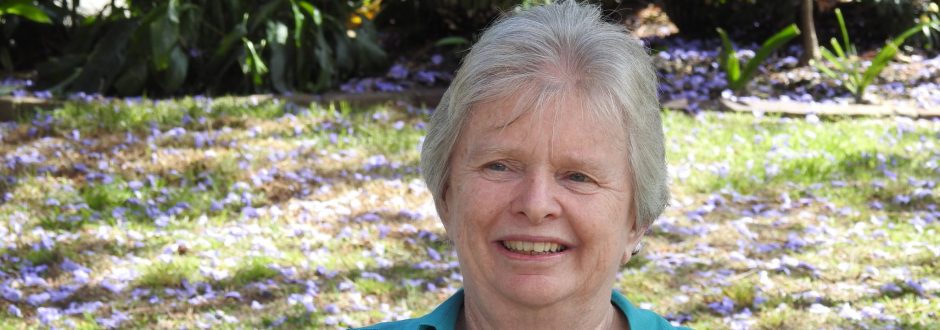Perhaps a commitment to vowed religious life is more significant than ever before, suggests Good Samaritan Sister Clare Condon.
BY Clare Condon SGS
I write these musings from the Philippines. I am in Bacolod on Negros Island, to receive the commitment of our Sister of the Good Samaritan, Germia Tocama, to the Benedictine vows of conversion, stability and obedience for the rest of her life. In religious life we call this commitment the act of perpetual profession, the lifelong choice to live religious life within a particular community.
I ask myself again: What relevance does such a commitment to vowed life have in our twenty- first century world of globalisation, consumerism and secularisation? Isn’t the prevailing paradigm one of self-advancement, immediate gratification and attention to the here and now, on what can life give me now?
For many in our world, even in Catholic Philippines, where a recent survey showed that 1 in 11 Catholics is leaving the Church, God is dead – or at least ailing badly – and God is not deemed to be so relevant in the daily activities that fill up the airspace between people. The din of the world around them blocks out any capacity to know God. In my own country of Australia, the faith of many people is sorely tested by the sexual abuse crisis.
My reflected response to this question of relevance is that perhaps such a commitment is more significant than ever before. There is still an underlying yearning in people for an authentic spirituality. On a universal scale this has been evident in the global interest in the election of Pope Francis. The desire for spiritual leadership has been articulated strongly.
On a personal level, as a perpetually professed Sister of the Good Samaritan, Germia is dedicating her life to the ongoing seeking of God, as revealed to us in Jesus Christ. For her, God is not dead. God is indeed alive and active in her life and in the lives of all people. In fact, she sees that God is alive in all of creation. Her daily search for God is evident in the living out of the values found in the Gospel stories. She encounters God in her daily prayer, in lectio, the sacred reading of Scripture, in participating in the prayer of the Church – the Work of God – by allowing the psalms, God’s poetry, to wash over her morning and evening, every day.
Germia witnesses to the perennial values of life-long conversion. It is a journey of spiritual and personal growth. She places her trust in God’s forgiveness and compassion so that she can grow more fully as a human person. Her life is a counterbalance to those who believe that one can only achieve happiness by self-assertion and dominance of others.
Her vow of stability seems anomalous in a world that is changing by the minute. How can one be stable in such a dynamic universe? Yet, this is not a vow by which one stands still. It invites her to remain in relationship – in relationship with her sisters and her God within this unstable world. She is called to ‘hang in there’ when it would be easier to run away from herself and from others.
And finally, there is that very unfashionable and misunderstood word – obedience. In popular parlance, to be obedient is to be weak, incapable of deciding for oneself, to be subservient to another. However, this is far from its true meaning. This vow of obedience invites Germia to listen – to listen deeply with a unity of heart, mind and spirit. It is to listen wholeheartedly to all of life and to make decisions from a thoughtful and discerned position.
Obedience is a counterbalance to individualism. It invites one to decide in collaboration with others for the good of all – for the common good. Such an approach to life requires a depth of maturity and of humility.
This act of perpetual profession is an act of faith, of love and of trust. It is an act which recognises God as the author of life. It is an act which identifies one’s own human strengths and limitations as gift from God. It is an act which affirms God as God. It states that God does matter. It is a ‘yes’ to God with all the inherent risks that life will bring, with all the uncertainties about one’s future. It is an act of courage, because it declares that one can live a life full of meaning and that one can be happy living a life contrary to the prevailing paradigm.
